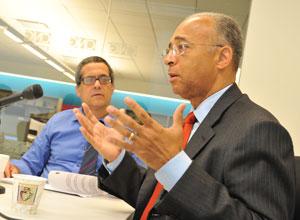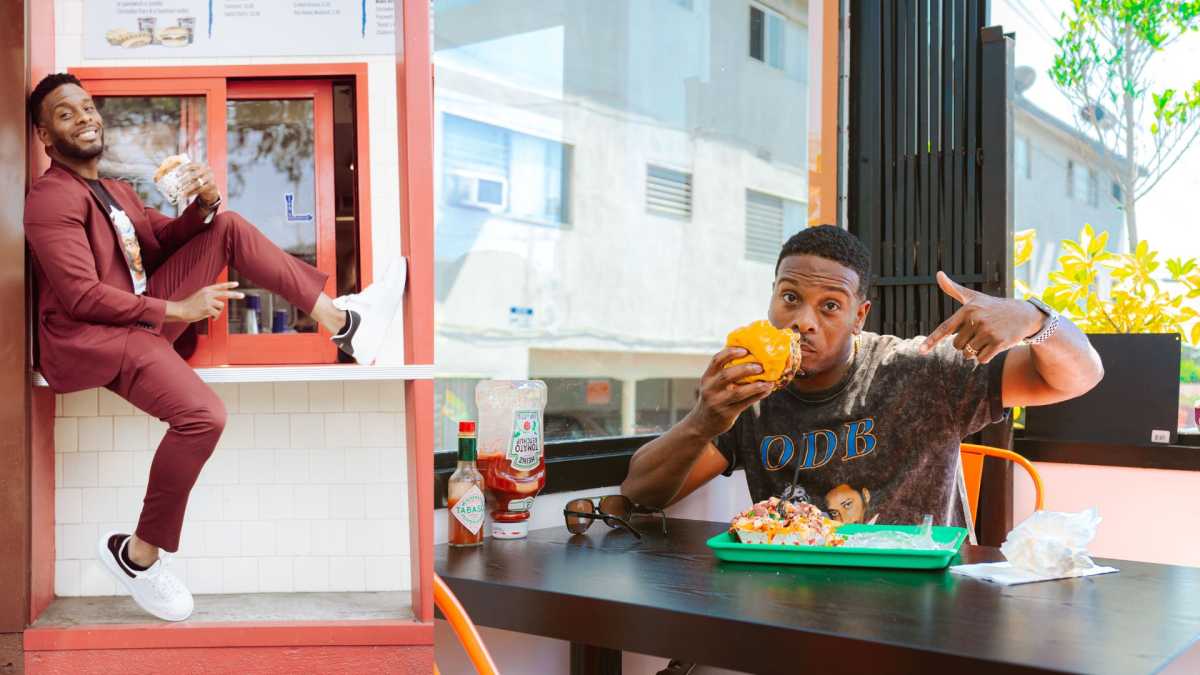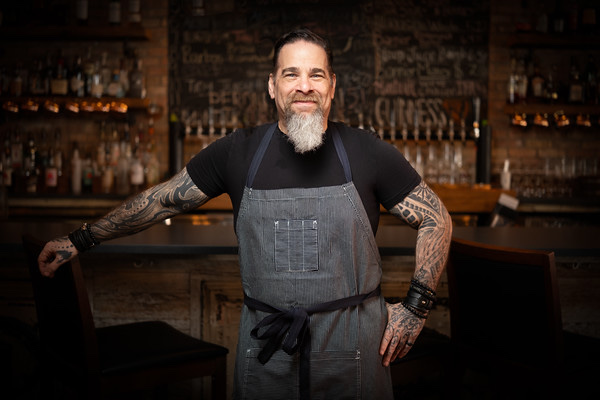It’s a numbers game that’s awfully one-sided: Mayor Michael Bloomberg has $36.5 million set aside for his re-election campaign while New York City Comptroller Bill Thompson, his Bed-Stuy born and bred challenger, has a little over $5 million squirrelled away in his bid to unseat him.
But as he faces a financial disparity as wide as the Grand Canyon, Thompson isn’t batting an eye.
“It isn’t just about money,” Thompson told this paper and members of its parent company, Community Newspaper Group, during an early morning sit-down at the company’s headquarters in MetroTech as he gears up for a September 15 Democratic primary election against Queens City Councilmember Tony Avella. “After awhile, people kind of turn off the TV commercials and become sick of having their mailboxes stuffed with Michael Bloomberg literature.”
Thompson said that the only way of beating someone with such a huge treasure chest as Bloomberg’s is to “put together the second greatest grassroots effort the city has ever seen.”
The first greatest grassroots effort helped get Barack Obama into the White House, he noted.
“We’re putting together supporters and volunteers throughout the city,” he said. “They realize that after eight years of Michael Bloomberg and Republican policies it’s time for a change.”
While Bloomberg is on everyone’s TV screen, Thompson is hitting the streets.
“I’m out there every day, every hour speaking to people on a retail basis — one person at a time,” he said. “I’m confident that all of this will come together.”
On the issues, ironically, Thompson and Bloomberg seem to have a lot in common.
Both support the Atlantic Yards project and the redevelopment of Coney Island, but Thompson said that he’s more interested in the affordable housing components of both plans.
Thompson, a former schools chancellor and deputy borough president, also supports mayoral control, although he does believe that parents are being left out of the equation.
“For the last seven years [parents] have been shut out or ignored,” he said. “They have no place to go.”
Thompson was critical of how the city allowed three hospitals to be shut down in Queens, which he said left a health care hole in the borough that ended up becoming ground zero for the H1NI virus.
While Bloomberg shrugged off complaints of excessive ticketing to aggressive and poorly trained ticket agents, Thompson accused the mayor of balancing the budget on the backs of New Yorkers.
“During these tough times this city should not be using the people of the city as a revenue stream,” he said, claiming that the mayor has “budgeted in” money they are going to receive from tickets for next year.
If elected, Thompson said that he would end this alleged practice of anticipating ticket revenue. Instead, he wants to replace the lost funds with increased taxes against residents making over a half a million dollars.
“It would be a .67 percent of an increase individually, but it would generate over a billion dollars for the city,” he said.
Thompson continued to stand apart from Bloomberg by agreeing with the spirt of community benefit agreements, which the mayor is against.
Yet the Comptroller doesn’t agree that everyone should make their own deal.
“There should be a blueprint that everyone agrees to,” he said, agreeing in part with Avella, who has repeatedly voted against large development projects and has spoken out in favor for local communities wielding the power when it comes to planning and approving development projects in their neighborhoods.
But as with Bloomberg, Thompson’s differences with his primary opponent are pretty wide: Avella has only raised just over $290,000 for his mayoral run.
























